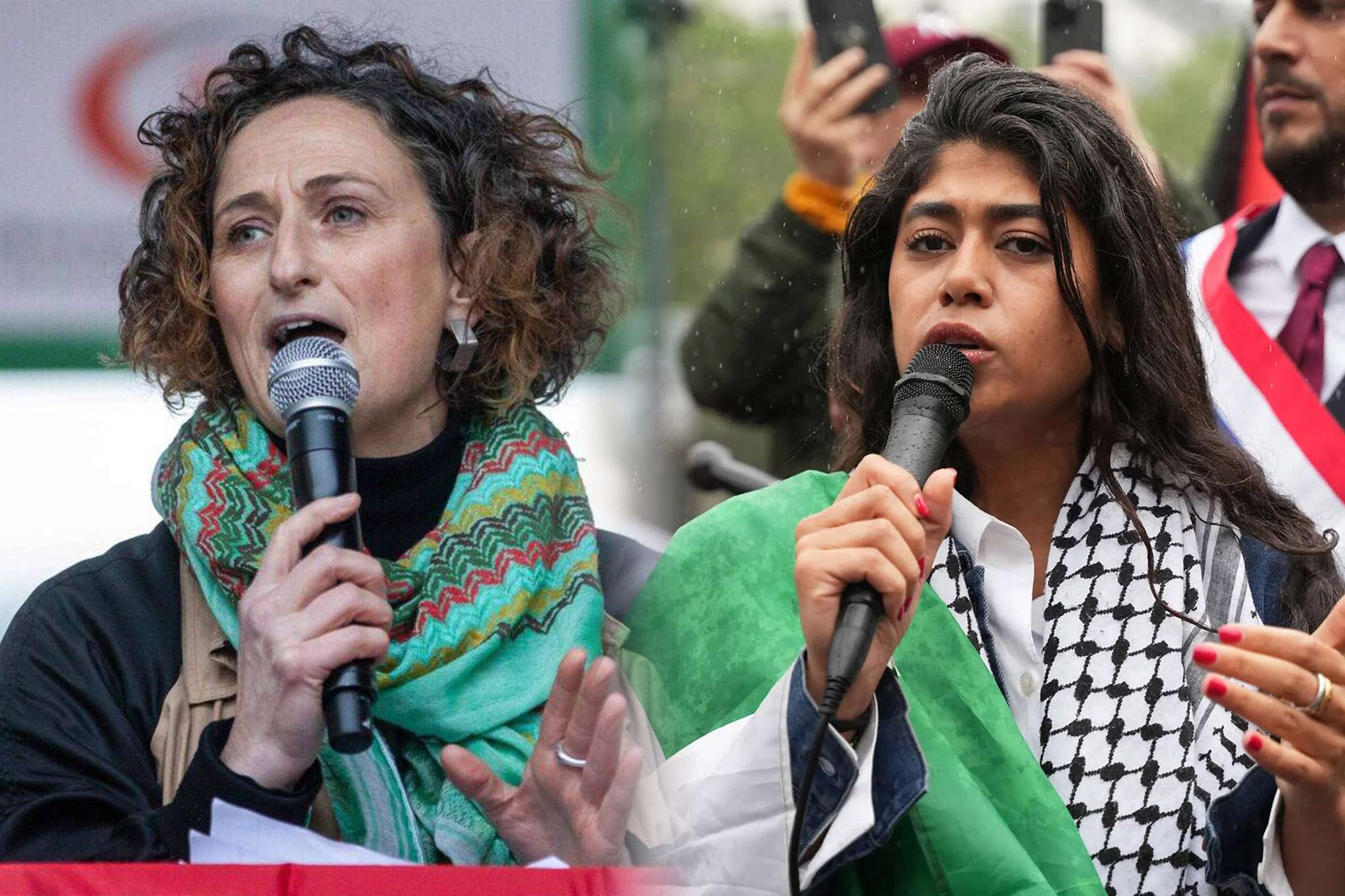
Israel’s decision to bar two members of the European Parliament (MEPs) from entering its territory due to their pro-Palestine position is arbitrary and unfair. It also reflects Israel’s strategy of concealing its crimes against Palestinians, and is an expected reaction to MEPs who reject the complicit role most European politicians have assumed in response to the Israeli genocide of Palestinians in the Gaza Strip.
The Israeli authorities stopped MEP Lynn Boylan, the head of the European Parliament EU-Palestine delegation, and MEP Rima Hassan upon their arrival at Ben Gurion Airport. The EU lawmakers were returned to Europe because of Hassan’s alleged “hostile” campaign to boycott and sanction Israel.
This decision reveals Israeli decision-makers’ disregard for fundamental human rights, such as freedom of movement and freedom of opinion and expression. It also embodies Israeli authorities’ insistence on its blackout policy and systematic restrictions in the Occupied Palestinian Territory. These restrictions are intended to prevent any independent oversight or disclosure of the facts; by prohibiting the entry of human rights activists, independent investigation teams, politicians, journalists, and individuals opposed to its policies, Israel is attempting to hide evidence of its violations and monopolise public perception to avoid international scrutiny and accountability.
This arbitrary measure is also used to maintain Israel’s illegal control over Palestinian borders and crossings. As part of its crime of apartheid and other human rights violations against the Palestinians, Israel uses its total control over movement into and out of the Occupied Palestinian Territory to persecute organisations and individuals for simply opposing illegal Israeli policies. It also denies the Palestinians their natural right to communicate with the outside world, such as by receiving international delegations and interacting with human rights and media institutions.
Moreover, the prevention of MEP Hassan from entering the Occupied Palestinian Territory is evidence of the Israeli government’s systematic policy of targeting and persecuting Palestinians in the diaspora by denying them the right to return to their homeland and imposing arbitrary restrictions on their ability to meet with their families. This is part of a larger Israeli strategy to isolate the Palestinians from their cultural roots and national identity, destroy their historical relationship with their land, and prevent the maintenance or establishment of any connection between displaced Palestinians and future generations and their homeland.
Given that MEP Boylan was planning to conduct tasks that are crucial to her job, such as meeting with representatives of civil society, Palestinian Authority officials, and Palestinian civilians affected by the Israeli occupation, the Israeli decision will inevitably make it more difficult for the two European MEPs to do their duties.
The European Union’s hesitant and frequently complicit stance towards Israeli crimes in the Occupied Palestinian Territory, particularly the genocide in the Gaza Strip for over 15 months, has not only shielded Israel from accountability but also encouraged it to intensify its repressive tactics to include EU citizens. By directly exploiting European silence, Israel is able to uphold its system of egregious oppression and illegally punish all those who oppose Israeli occupation and violations against Palestinians.
The two European MEPs were banned after the Israeli Knesset approved an amendment to the “Entry into Israel Law” on 19 February. The amendment forbids granting entry visas to anyone who denies the Holocaust or the 7 October attacks, or who supports the prosecution of Israelis based on their military service or security.
The new amendment enshrines an arbitrary, discriminatory policy that violates Palestinian rights as well as international law. It also lacks independent mechanisms for review and appeal, and is clearly a tool to punish human rights defenders, silence critics of Israel, and further exclude Palestinians from the international protection system.
Besides monopolising access to information to control the narrative, and ignoring or distorting facts that do not serve its interests, Israel’s policy of prohibiting or restricting the entry of independent individuals and entities concerned with human rights, relief efforts, and unbiased journalism into its territory affects the most vulnerable victims of its crimes more than anyone else. This policy primarily undermines humanitarian relief operations and the work of independent fact-finding and investigation committees concerned with interviewing victims and documenting violations.
Since the European Union is Israel’s biggest trading partner and accounts for roughly 29% of its goods trade, the Union has purposefully avoided using any of its pressure tools against Israel. Powerful EU nations like Germany have also persisted in sending sizable shipments of weapons to Israel in spite of knowing that they would be used in the genocide in the Gaza Strip.
Israel is an illegal occupying power with no legal authority to impose sovereignty or regulate anyone’s access to the Occupied Palestinian Territory. Therefore, the international community must act swiftly to force Israel to lift its illegal blockade on the Occupied Palestinian Territory—particularly the Gaza Strip—and to stop the arbitrary and illegal restrictions placed on the ability of individuals and organisations to travel there.
It is critical to end Israel’s policies of blackouts and refusals to cooperate in order, as these are plain attempts to isolate the Occupied Palestinian Territory and thwart any independent international oversight of Israeli violations. There is no question that the prohibitions placed on journalists, human rights advocates, and humanitarian organisations are intended to ensure the Palestinian population does not benefit from international protection mechanisms, plus prevent the documentation of Israeli crimes against Palestinians.
The European Union must end its pointless cycle of denunciation followed by inaction, and apply serious pressure on Israel to cease its flagrant transgressions of the EU’s partnership principles. The EU itself must also be compelled to halt all import and export activities involving weapons and technologies that Israel uses to perpetrate crimes against the Palestinian people.






